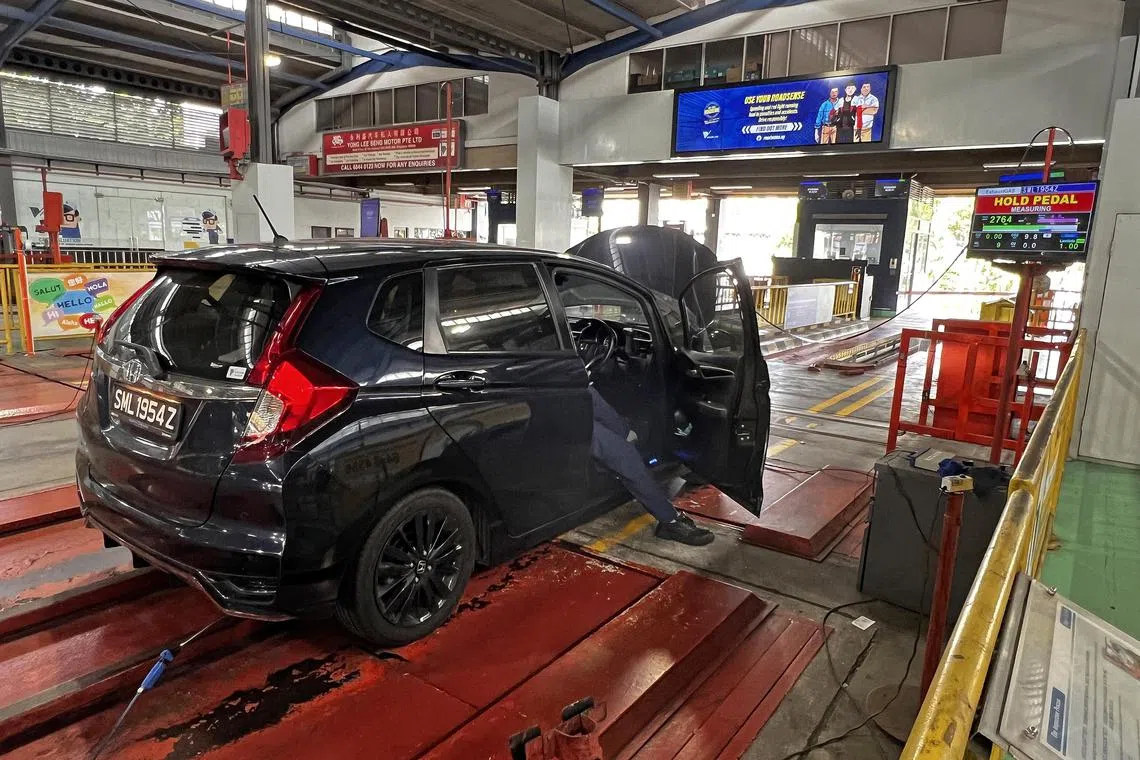Torque Shop: Buying a used car with a modified exhaust system
Sign up now: Get ST's newsletters delivered to your inbox

If a car cannot pass the periodic inspection, it has to be taken off the road.
ST PHOTO: JOYCE FANG
Is it a problem buying a second-hand car that does not have a catalytic converter?
It is a requirement for cars to be equipped with a catalytic converter, or “cat”, which is part of the car’s exhaust system. Removing the cat is therefore illegal.
Any vehicle that originally came with a factory-fitted cat will not be issued with an inspection certificate if the cat is missing or has been tampered with. Without this certificate, it will not be possible to renew the car’s road tax.
Catalytic converters look like exhaust mufflers. Inside, they are filled with very expensive natural elements – such as platinum, palladium and rhodium – that chemically treat exhaust gases to reduce carbon monoxide, nitrous oxides and hydrocarbons.
If the cat is not working, you may notice a distinctive smell of exhaust gas when the engine is idling.
While your car should still run smoothly, missing a catalytic converter means the exhaust gases are not being treated to alleviate the polluting components emerging from an internal combustion engine.
Catalytic converters can be expensive, costing more than a few hundred dollars, and they are model-specific. If you are lucky, you may find a used one at a scrapyard. Otherwise, you will have to get a new one from a parts supplier.
An inspection, whether at your own motor workshop or the inspection centres, will reveal if the exhaust system has been modified. Modifications may involve part of the system being changed. Look out for signs of cuts or welds.
Unless the modification has been certified, any deviation in the exhaust system will be deemed illegal.
Non-approved modifications are strictly forbidden in Singapore, even if the noise and emissions test results are within legal limits. While there may be aftermarket exhaust systems that are approved for road use, they must be certified in Singapore before use.
Even with certified modifications, it is important to check that the vehicle’s identification number and engine number match the records on the registration document from the Land Transport Authority.
Arrange for an experienced mechanic from an authorised workshop to confirm that neither of these numbers has been altered.
It would be a nightmare to find, during a routine inspection, that your recently purchased used car has been blacklisted because of a discrepancy in the documentation. If the car cannot clear the inspection, it has to be taken off the road.
The safest thing to do when shopping for a used car is to insist on a pre-purchase inspection to avoid such risks. If the seller refuses, walk away from the transaction.


